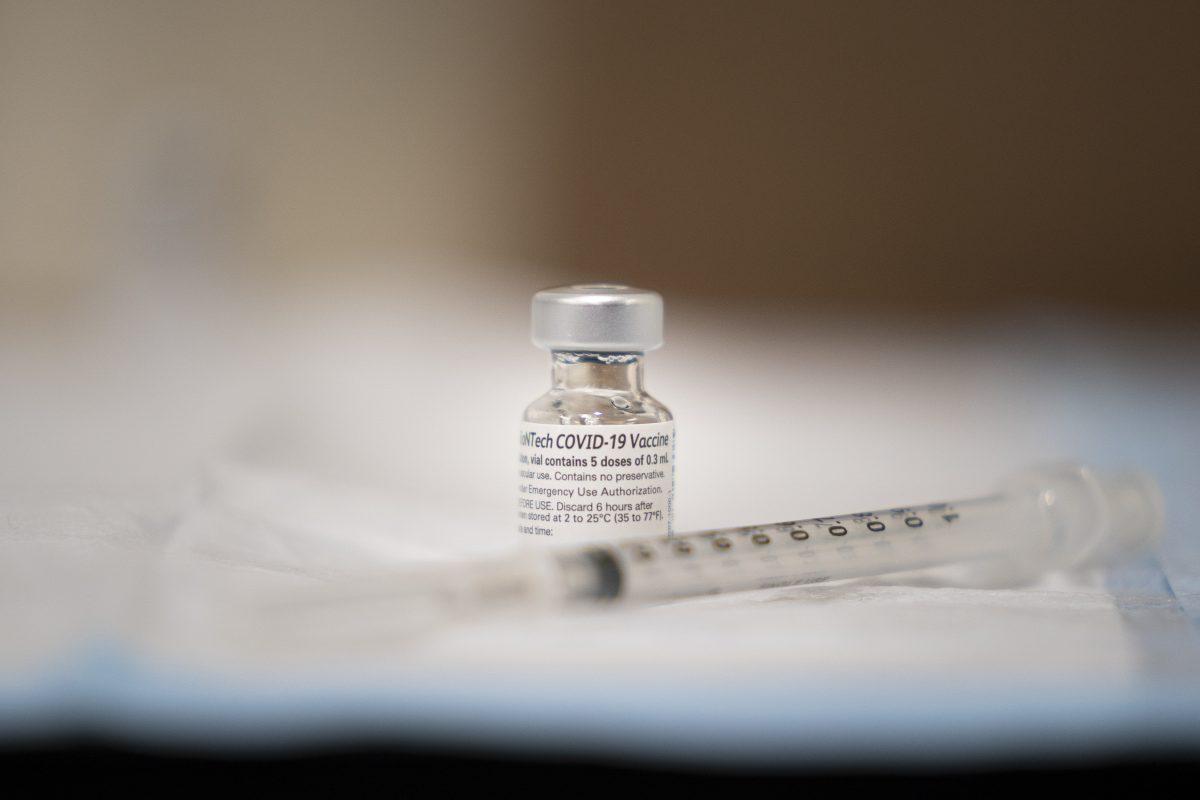COVID-19 cases are on the rise in Texas due to a new strain.
The Texas Department of Health and Human Services has reported that reported COVID-19 cases have jumped by 11% in the state between Aug. 27 and Sept. 2 compared to the week before. The Centers for Disease Control, or CDC, attributes the rise in cases to a new COVID-19 variant, EG.5, otherwise known as “Eris.”
The CDC stated the Eris variant is responsible for 20.6% of confirmed COVID-19 cases at the end of the third week in August.
College Station’s confirmed cases of COVID-19 have been on the rise as well. Chief of Medical Staff at the Texas A&M Student Health Center, Dr. Gale Ponder, MD, said many new cases have been popping up on campus.
“Here on campus, we are seeing more cases of COVID[-19],” Ponder said. “A lot of the new cases in our community do seem to be the Eris variant.”
Ponder said in the summer, the A&M Student Health Center only saw positives in very low percentages of tests. However, this number has increased as students returned for the beginning of the fall semester.
“There has definitely been an increase in the percentage of positive in the past couple of weeks,” Ponder said. “Here at the clinic, we only did 112 PCR tests last week, and 37% of those were positive.”
According to a Yale Medicine article, the Eris variant does not produce variable differences in symptoms compared to other COVID-19 variants. A&M Associate Professor of Epidemiology Loni Taylor said it’s not uncommon for new variants of viruses, like COVID-19, to show up.
“A strain is the new variant of viruses or other organisms that can cause us to be ill,” Taylor said. “This particular strain of COVID-19 is a relative of the parent virus, COVID-19 Omicron. The thing that makes this one slightly different is that it has a little bit of a different shape to its spikes.”
Taylor said spikes on viruses are what attach to our cells and can make us sick. Additionally, Taylor said the new variant is causing concern among epidemiologists.
“Anytime we see an increase in infectious diseases, we want to encourage the public to be vigilant with their infectious disease prevention strategies,” Taylor said. “Things like washing your hands and making sure you have a good relationship with your healthcare provider.”
Both Taylor and Ponder said they were unaware of any changes that would occur on the part of A&M to try to tackle the rising cases of COVID-19. Due to the rise in cases, some students are saying they are worried about their health at A&M.
Masters of Public Health first-year Zharia White said she was worried about contracting COVID-19.
“I am worried because I have people at home, and I like to travel back home a lot,” White said. “I have three asthmatics at home. My father is nearing 60 and is where he is more at risk. As for me, I am worried because I don’t take sickness well.”
A&M’s COVID-19 Guidance website recommends students stay home when they feel sick, cover coughs and sneezes and wash their hands often. However, White said that this may not be enough.
“I do think that there should be some action taken,” White said. “But we also need to realize that because of our numbers and our closeness, it might not be able to have the results we want. But a little bit of prevention is better than a pound of care.”
While some students agree more measures should be taken, others, like engineering freshman Jack Jones, said there should be no worry about COVID-19 anymore on campus.
“My experience with COVID[-19] is that it has been like a little-bit worse version of a cold,” Jones said. “I deal with the cold all the time. It is not terrible.”
Taylor said students can reduce their chances of contracting the COVID-19 variant or other illnesses by taking normal health precautions.
“They [CDC] are still recommending that individuals stay home if you feel sick,” Taylor said. “If you feel sick, get tested for respiratory viruses. Seek treatment from a medical professional if you feel ill … wash your hands frequently, and when you gather, be in areas with good ventilation.”










